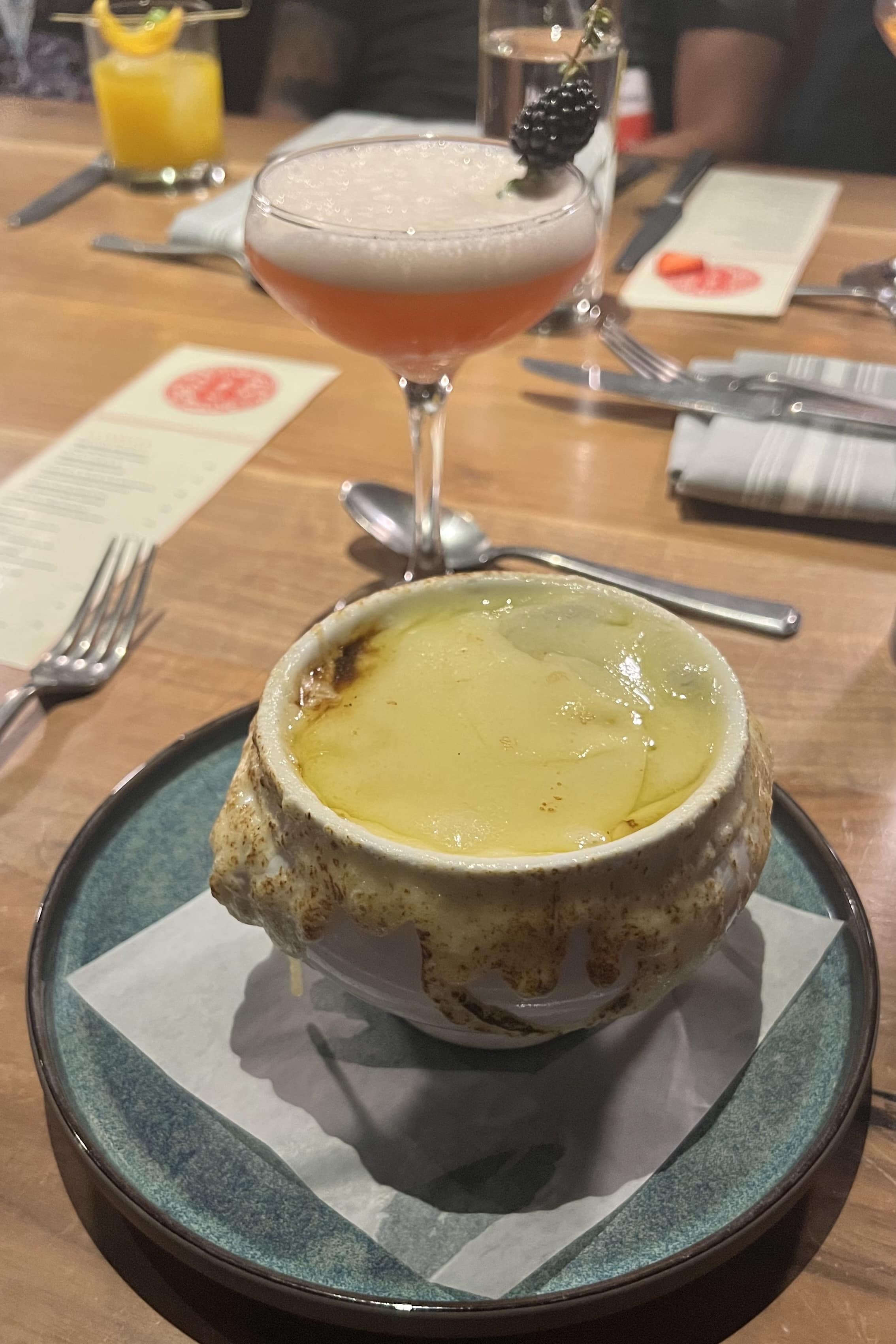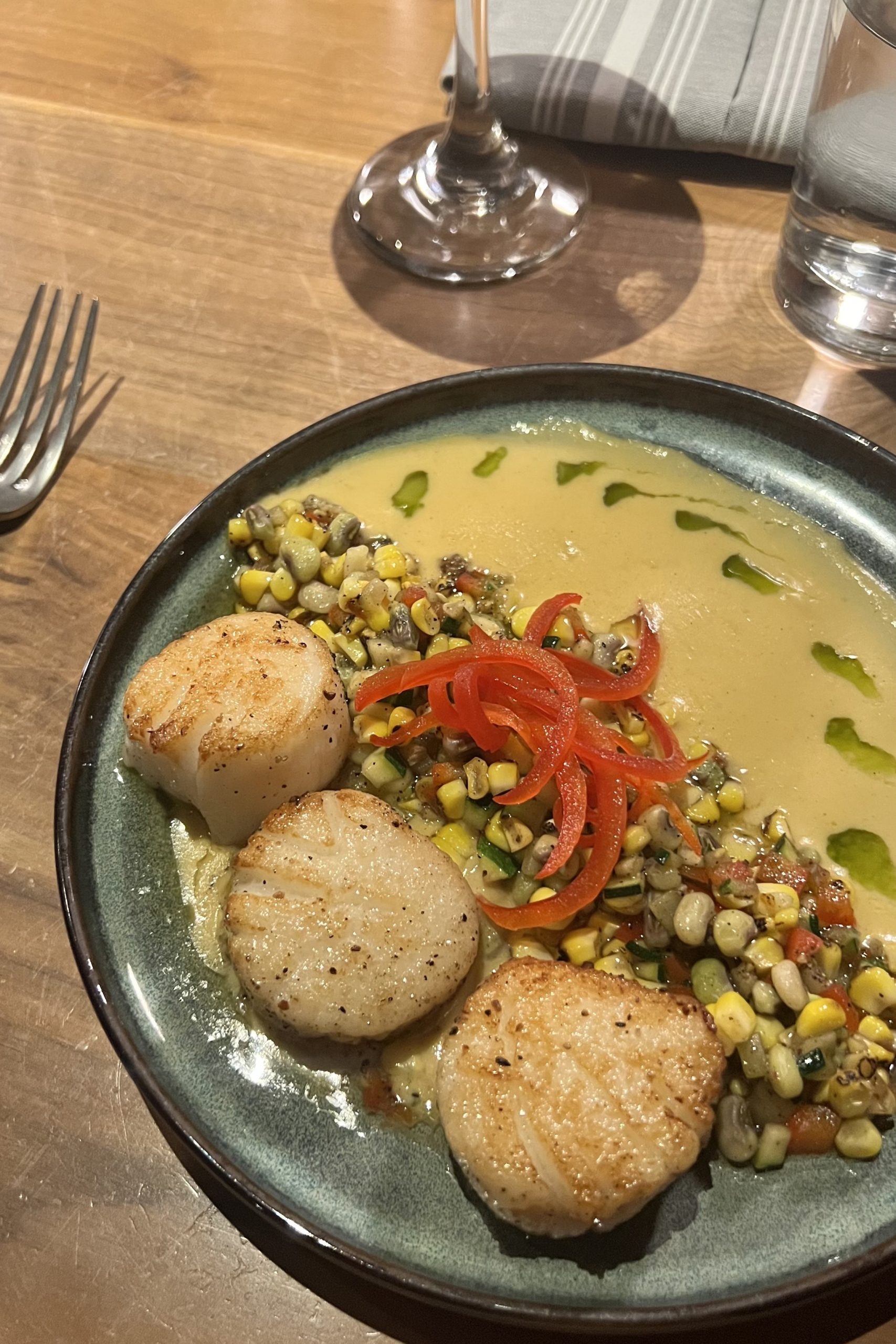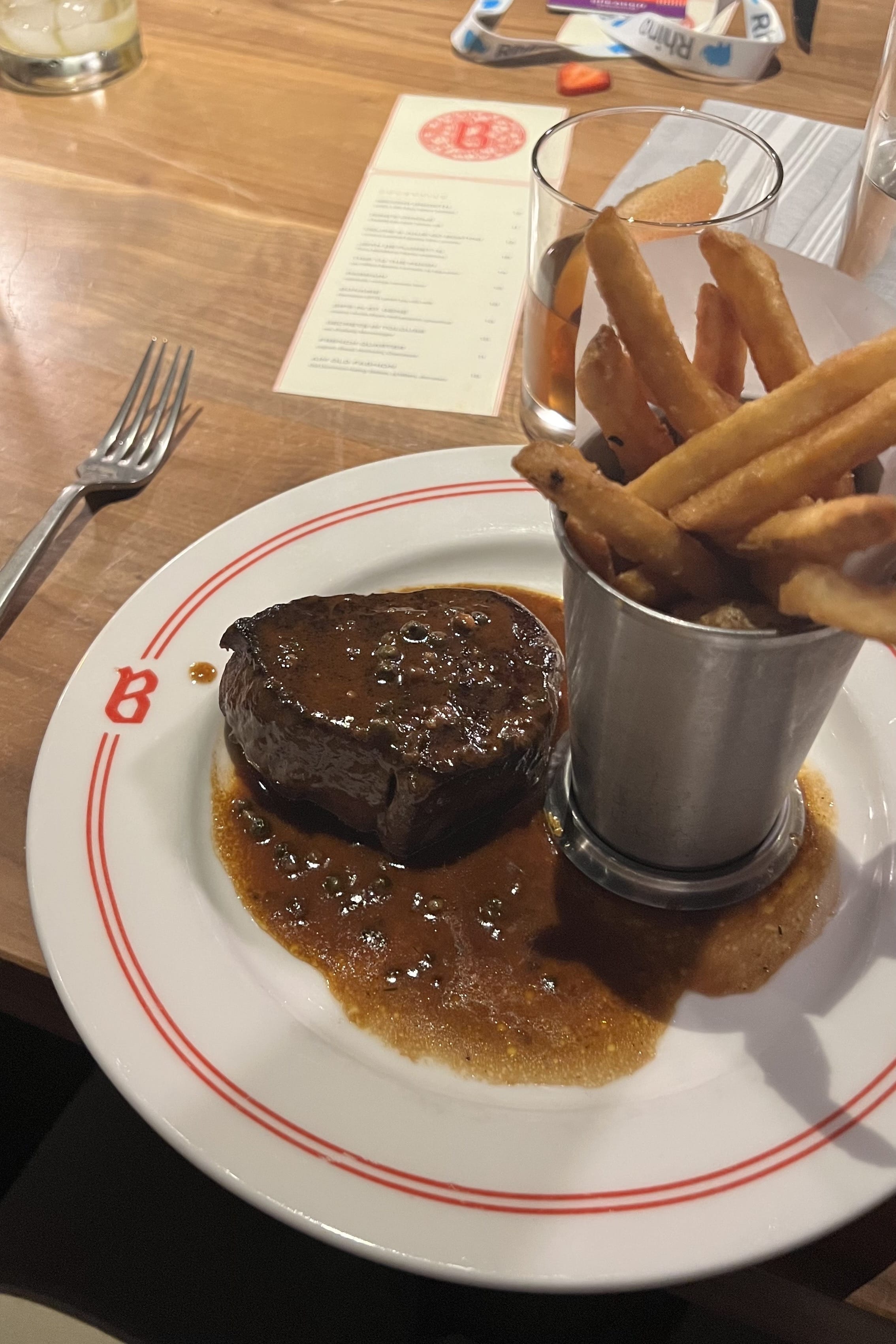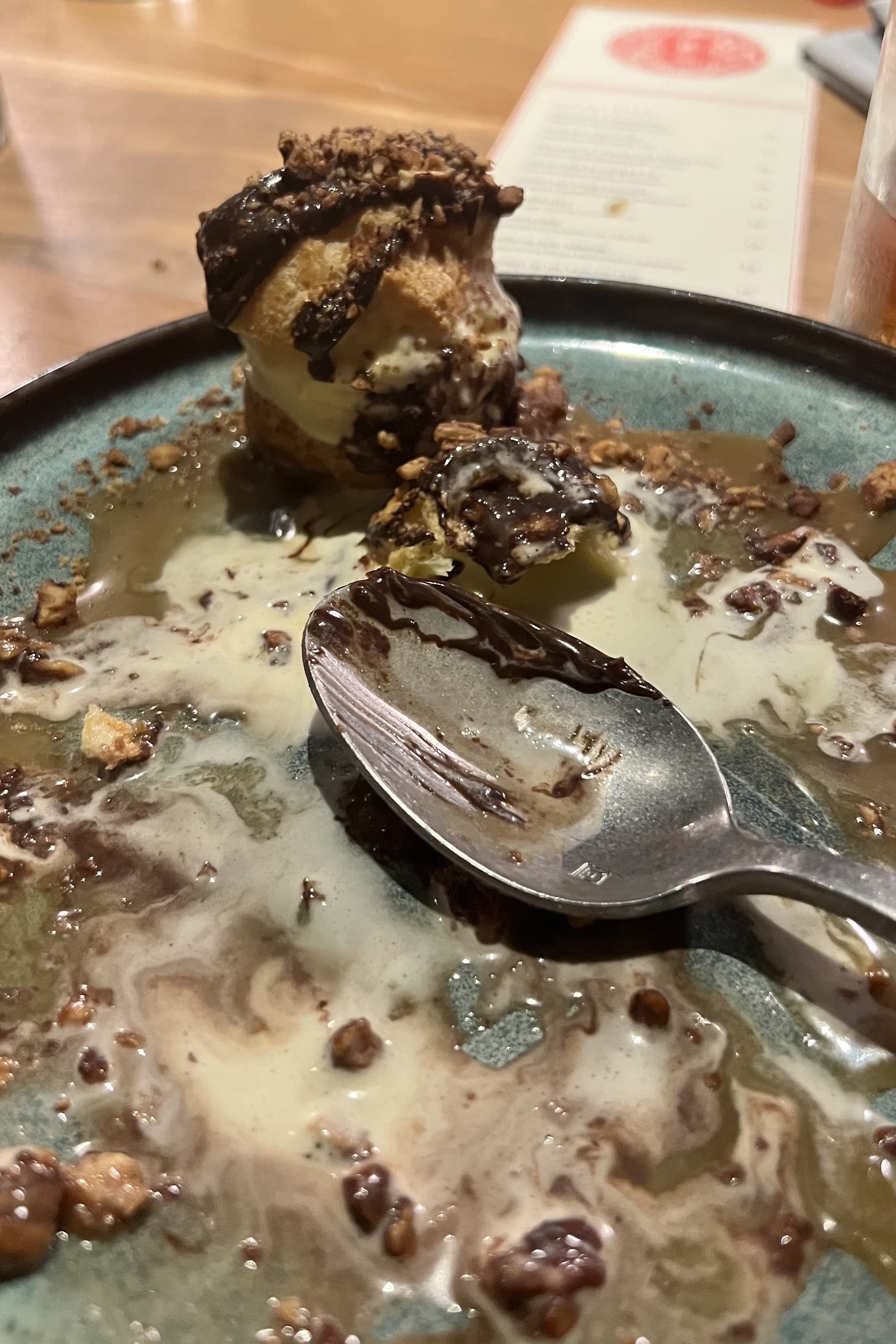I spent last weekend in Memphis, my first visit to the state of Tennessee. I always enjoy a good American road trip, and I was keen to tick off another undiscovered corner of the continent, even if only a shorter trip to a single city.
Ricky and I were in town for TravelCon 2022, a conference for travel content creators across all sorts of media. We were exceptionally busy learning and networking – we didn’t have a ton of time to explore the city as tourists, so take these impressions through that limited lens.
In This Post
- 1. Hear the Blues Music
- 2. Feel the Civil Rights History
- 3. Everything Moves Slowly (And So Will You)
- 4. Taste the Soul Food
- 5. Sip the Cocktails
- 6. Visit Graceland
- 7. Visit Elmwood Cemetery
- 8. Getting Around Downtown
- 9. Watch Out for Your Safety
- 10. A Black Hole for Aviation
- Conclusion
1. Hear the Blues Music
Memphis, known as the home of the blues, is world-famous for its music scene.
I had time to take in the Memphis Rock ‘n’ Soul Museum. The exhibits are a journey through different eras of black music in Memphis, from the early influences of gospel, to the impoverished rural spirit of the blues, gradually evolving into rock and roll which flourished in the city and caught fire worldwide, and eventually funk and soul.
In particular, Memphis was known for white and black musicians coming together to create music. Over time, the city saw the two cultures thrive off each other’s influences, collaborate across racial lines not just as musicians but also as record label owners, and host the country’s first all-black radio station. Indeed, this togetherness, and the popularity of its products, was a strong force against segregation across the country.
The museum offers a self-guided audio tour, but you can also opt to listen to some of the defining songs of the eras. Elvis Presley is certainly the most famous name to come out of the rock and roll scene, but there’s no shortage of men and women who put their lasting stamp on a cultural era.
You can also visit other music museums around town, including the Stax Museum (which by all accounts is fantastic) paying tribute to its namesake record label, or the Memphis Music Hall of Fame.
And of course, you must pay a visit to Beale Street. Historically a critical centrepoint of culture and commerce for the black community during segregation, to this day you’ll find exceptionally-talented local musicians jamming out seven nights a week.
The neon-adorned Beale Street is the hub of Memphis’ nightlife. You can catch some live entertainment at bars, theatres, or wafting from patios as you walk the pedestrianized street.

Check out B.B. King’s and other historic venues. We were also treated to a big band parade, coordinated for the conference by Memphis Travel, the local tourism board.
2. Feel the Civil Rights History
Memphis is also known as a focal point of the American civil rights movement. Don’t miss the National Civil Rights Museum, one of America’s best cultural and historical museums.
While Memphis wasn’t a hotbed for civil unrest and violence, which mostly occurred in other parts of the south, it was still an important city. As a hub of modern black music in America, it became a natural cradle for enthusiasm, as art bled into all areas of strengthening and defending a proud culture. Many leaders of the civil rights movement made Memphis their home, and it was the site of many peaceful speeches and marches.
The museum is a moving collection of history, taking you on a journey from the slave trade, through the era of segregation after slavery was abolished, to protests and gradual reforms, highlighting victories and challenges which are still continuing today.

You’ll explore themes such as the role of religion as an organizing force, the importance of women, the distinction between violent and peaceful protest, and strategic political maneuvering by those in power as they sought both to quell and to capitalize on the changing times.
Notably, the museum emphasizes people who were victims of pivotal moments of injustice. The civil rights movement was a success because of the power of group action, but I found that by highlighting individuals and not just reducing them to a statistic, the museum effectively showcased the gravity of the events through personalized stories.

The museum is an immersive sensory experience, beginning with representative sounds of slave ships, and culminating in videos of rallies, including Dr. Martin Luther King Jr’s most momentous speeches. The man was truly an electric, captivating orator, an effective and worthy voice for the cause.
The exhibits are housed inside the building that used to be the Lorraine Motel, once a hub for the movement in Memphis, and the eventual site of Dr. Martin Luther King Jr’s assassination.
The displays climax with a walkthrough of the hotel room where he was staying when he was shot on the balcony.

You can also tour a secondary exhibit across the street, which focuses on the assassination, and the subsequent manhunt and cultural fallout across America.
The National Civil Rights Museum is well worth the price of admission and time spent. I’d make it your absolute top priority in Memphis.
3. Everything Moves Slowly (And So Will You)
You can’t help but notice that Memphis falls short of its prominence.
Don’t get me wrong, Beale Street is great, but the main drag is only four blocks long.
Based on the city’s well-known reputation for a lot of specific cultural and historical moments, I expected there’d be more going on. Instead, the downtown felt like any other small American city, perhaps punctuated by more highlights but without much else.
Walking around during the day, there’s almost zero life in the streets. Beyond Beale Street, even weekends downtown were quiet. There was still some sort of heartbeat to the place, but with palpable low blood pressure.
There’s a striking emptiness to the charming Southern architecture, almost like the city has been abandoned yet inexplicably kept in decent shape. In a way, it felt frozen in time.
Memphis is characterized by the slow pace of life that pervades the rural South. Days are hot and humid, food is heavy, and everyone is humbly going about their day-to-day reality.
4. Taste the Soul Food
The go-to spots for traditional Southern cooking are recommended for good reason. If a local points you there, or if there’s a line out the door, you know it’s worth the wait.
It would be a shame to go to the south and not eat some lip-smacking barbecue.
To clarify, real barbecue is not when you throw some meat and vegetables on a grill. It’s slow-cooked, 24-hour-marinated, the works. And it’s done at scale, with massive restaurants catering to that one style of cooking.
I stopped in at Central BBQ, a sprawling smokehouse with an air-conditioned room and two patios.
I ordered a half rack of ribs plate, which came with two sides and bread. It’s a solid portion of meat. Having tried both ways, I’d recommend ordering your ribs wet (with barbecue sauce).

Despite its deserved reputation, I wasn’t blown away by the flavour or texture of the ribs. Indeed, it seems that Central may be a bit inconsistent. Some friends recommended Cozy Corner, which was my first choice but was unfortunately closed on the days when I had time to visit.
Also, don’t forget to eat some fried chicken while you’re in Memphis.
I ate at Gus’s, a modest regional chain which can also be found in Austin. The fried chicken there was phenomenal – always go for the dark meat! I also sampled some Southern specialties, including fried okra, collard greens, and fried green tomatoes, all of which were quite tasty and distinct.

If Gus’s doesn’t work out, you could try Uncle Lou’s as per a local recommendation, or the eclectic Alcenia’s for an intimate connection with the restaurant’s operators.
5. Sip the Cocktails
For a place whose modern appeal is so rooted in its rich history, downtown Memphis has a healthy smattering of hip, modern eating and drinking establishments.
I’m still trying to wrap my head around who exactly in a slow place like Memphis is patronizing all these trendy spots (which are priced accordingly). I suppose there’s a good equilibrium between market saturation and tourist traffic.
Throughout the weekend, I noted that there seemed to be a disproportionately-strong cocktail scene for the size of the city’s young professional class. Both the number of speakeasies and the variety of their menus impressed.
Among the spots that stand out, I quite enjoyed the cocktail selection at the Silly Goose, where we had one of the official evening parties. I was also impressed with the bartenders’ ability to prepare such a wide range of complex drinks for a busy open bar.
Eight and Sand was another favourite, which we visited twice. In the building that houses a Hilton Curio Collection hotel, the lounge has been converted from the grand hall of the old central railway station.
The night we arrived, Ricky and I enjoyed a spectacular dinner with friends at Bishop, adjacent to Eight and Sand. I’ll give the food a quick shout-out here in the cocktail section (as it was anything but soul food), but the cocktail list was excellent as well.
In true Southern spirit, there are a number of distilleries around. Old Dominick has the highest profile, offering tours and merchandise.

It’s across the street from Gus’s if you want a quick drink while you await a table. I enjoyed their peanut butter Old Fashioned, a subtle twist on a tried-and-true classic.
Finally, Memphis has a fledgling craft beer scene. Wiseacre, Ghost River, and Grind City are easy to find around town. They’re solid, if not remarkably unique.
Still, with the craft beer tidal wave washing over untraditional markets, I’m always glad to see local restaurants selling local products even if they aren’t world-beaters.

6. Visit Graceland
While civil rights tourism may be more enriching, and people do come from all over for it, Graceland is probably the single attraction in Memphis that most strongly pulls people to the city, just for that one thing.
You can tour Elvis Presley’s mansion, complete with interactive exhibits and over-the-top memorabilia. It’s been described as a Disneyland of sorts. Tickets are not cheap, and I’d think that most casual tourists would get more out of gracing the music scene downtown as I did.
I didn’t visit Graceland, as I’m not an Elvis superfan and wasn’t keen to pay that price for “the one big thing to do in Memphis.” However, I can see the appeal if you’ve come to the city specifically for it.
7. Visit Elmwood Cemetery
Elmwood Cemetery is an 80-acre facility, the oldest active cemetery in Memphis. With its robust foliage, the beautiful natural space also includes an arboretum.
Many famous Memphians are buried here – Civil War generals, civil rights activists, musicians, and politicians – with many monuments to recognize them. Elmwood is a historical attraction in its own right.
I didn’t have time to visit the Elmwood Cemetery, but it sounds like a pleasant interlude to supplement the cultural museums downtown.
8. Getting Around Downtown
Downtown Memphis has the cutest little trolley running up and down Main Street.

You can walk the pedestrian mall or nearby streets, but depending on the extent of your sightseeing, it can easily be more than half an hour from end to end.
The trolley is slow, even slower than walking sometimes. But in the Southern climate you won’t care. Just hop on, enjoy the kitsch, and embrace the slower pace of life.
If you’re looking to scoot through downtown a bit quicker, hop on a Bird scooter via their app. You’ll find them scattered all over downtown, and you can leave them pretty much anywhere except right on Beale Street. It costs about US$10 per mile.
If your feet do take you somewhere, let them take you along the Mississippi River. To the uninitiated, the river is large, with Arkansas on the far side. The banks downtown are being gentrified with a riverside pathway and a small neighbourhood of modern condos overlooking the Mississippi.
Just watch your navigation as there’s a lot of construction in this rapidly-changing part of the cityscape.

9. Watch Out for Your Safety
Memphis isn’t exactly known for being a safe destination.
The city is noticeably less wealthy than other American metropolises, and can make for more crime. Downtown in particular is known for being a bit more dangerous, which wouldn’t surprise you when you see (and smell) the streets.
However, I’d note that the same could be said of anywhere, whether as exotic as Medellín or as familiar as Chicago. It’s no different than any other destination: keep your wits about you, and don’t recklessly go anywhere that makes you think twice.
In my experience, in the absence of an explicit threat, I wouldn’t let a vaguely dangerous reputation be a deterrent for visiting a place.
To get to attractions further afield, you’ll absolutely want to take an Uber or Lyft. There aren’t many available, so you may have to wait a while. On the flip side, you’ll know it’s a safe ride, as the drivers recognize their own scarcity and value their good gig.
10. A Black Hole for Aviation
Getting to and from Memphis is quite a challenge. Indeed, it has the dishonour of a yellow dot on FlightConnections, indicating fewer than 50 routes operating to and from the airport.
Ricky and I took a roundabout journey from Vancouver. The best outbound flights we found involved a six-hour layover in Denver, flying with United. The best alternative would’ve been a crack-of-dawn departure, so we opted for a long layover to get some work done.
Still, we skipped our second leg and took an earlier Southwest flight when a last-minute engagement arose that we didn’t want to miss. United couldn’t short-check my bag, but with a bit of convincing and flexing my Aeroplan status, they were able to move me to a simultaneous Air Canada flight, allowing me to retrieve my bag in Denver.
Returning to Vancouver, Ricky opted for a Sunday night Delta flight to Los Angeles, an airport hotel, and an early morning Air Canada flight home.
I went with an Economy Latitude Aeroplan redemption via Newark and Toronto, with strategic long layovers and comfortable Air Canada Signature Class seats (from which I’m writing this) for a semblance of a functional work day.
(Thankfully, all of our United segments were eligible for complimentary premium seats upon check-in, by virtue of our United Silver status which we both matched to as Marriott Bonvoy Titanium Elite members.)
We also considered extending our time in Tennessee with a road trip to Nashville, or further to Charlotte, North Carolina. Either terminus would have much better connectivity.
If you’re planning a visit to the region, I’d strongly suggest flying in and out of more accessible hubs, spending some time in what I imagine is a more lively Nashville, and making Memphis a stop on a road trip which may include any combination of the Great Smoky Mountains, the Bourbon Trail, or the Mississippi River down to New Orleans.
Conclusion
Memphis is an odd place, with more attractions than attraction. The city’s highlights are incredible highs, but the gap between those and the lowlights is enormous.
There’s not a lot in the middle, making Memphis a challenging city for poking around. If you’re looking for downtime, you’ll really have to lean into the Southern pace of life.
While I’m thankful for the opportunity that TravelCon gave me to get a taste of the city, part of me regrets not having more time there. With a rushed weekend, I definitely left some stones unturned, but would have to make quite a journey to ever go back. I do need to do an Appalachian road trip someday, so I’m sure I’ll be able to spare a couple nights to detour back to Memphis if I feel compelled to do so.
As you plan your trip to Memphis, be strategic about how you make it happen conveniently, and how you prioritize your sightseeing. Barring an unforeseen reason to return, your first visit may be your last.






















